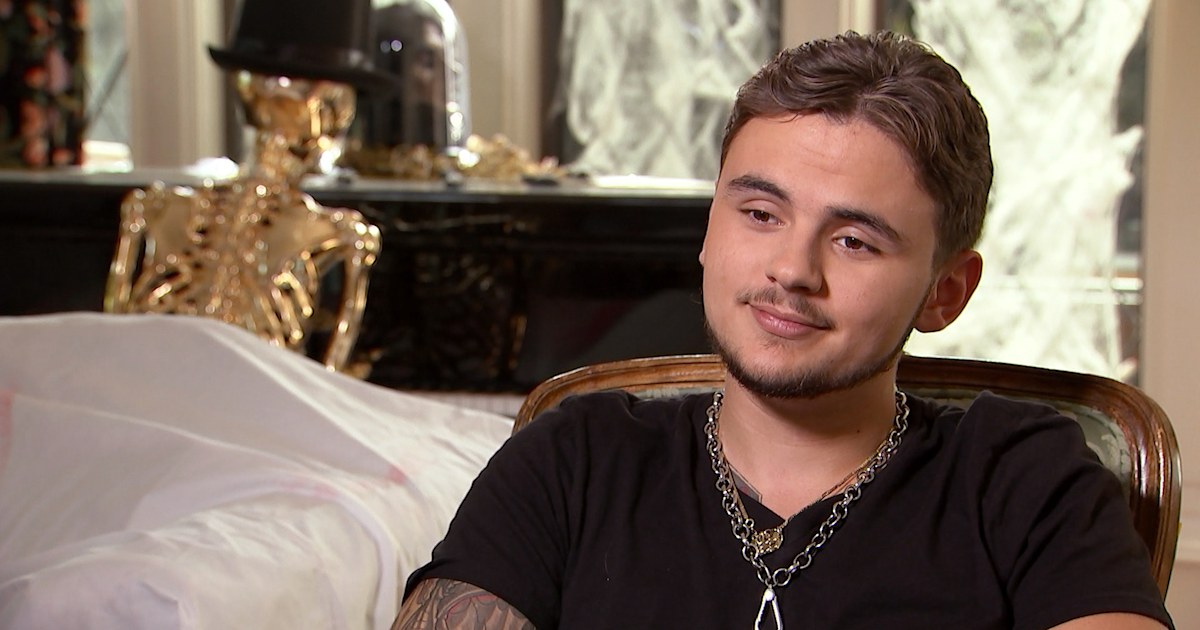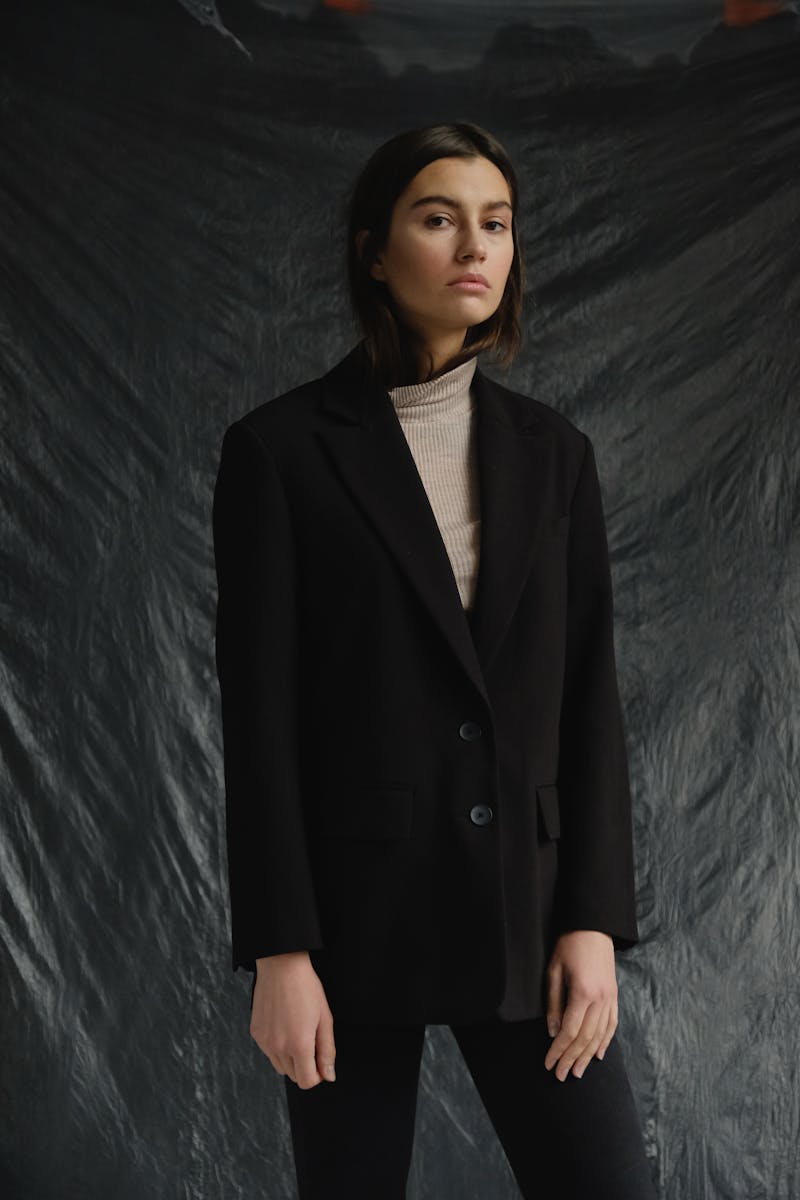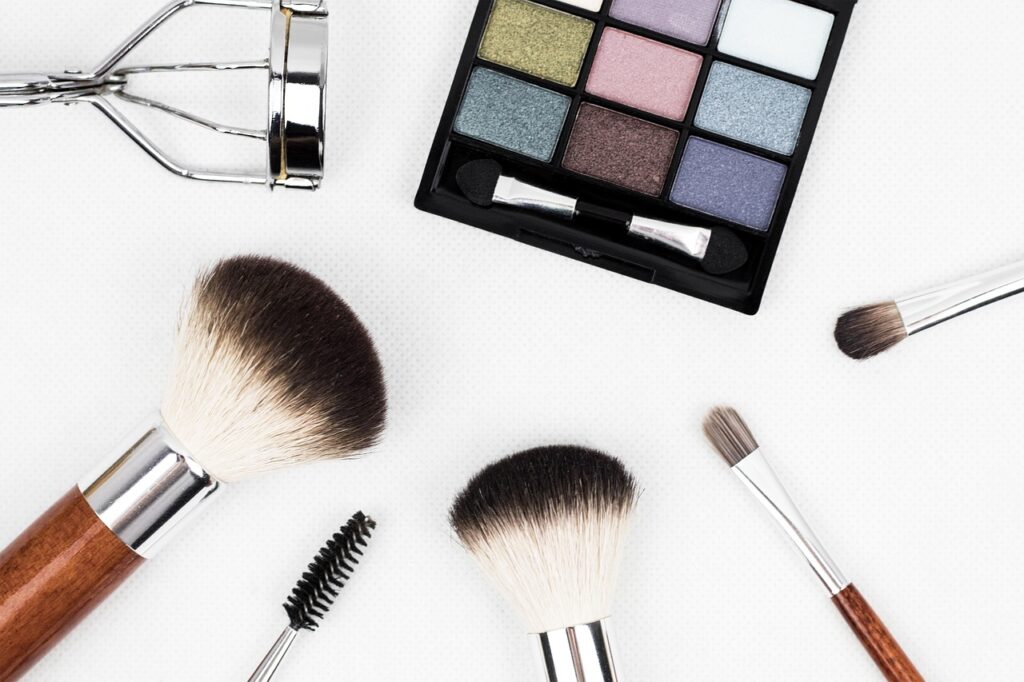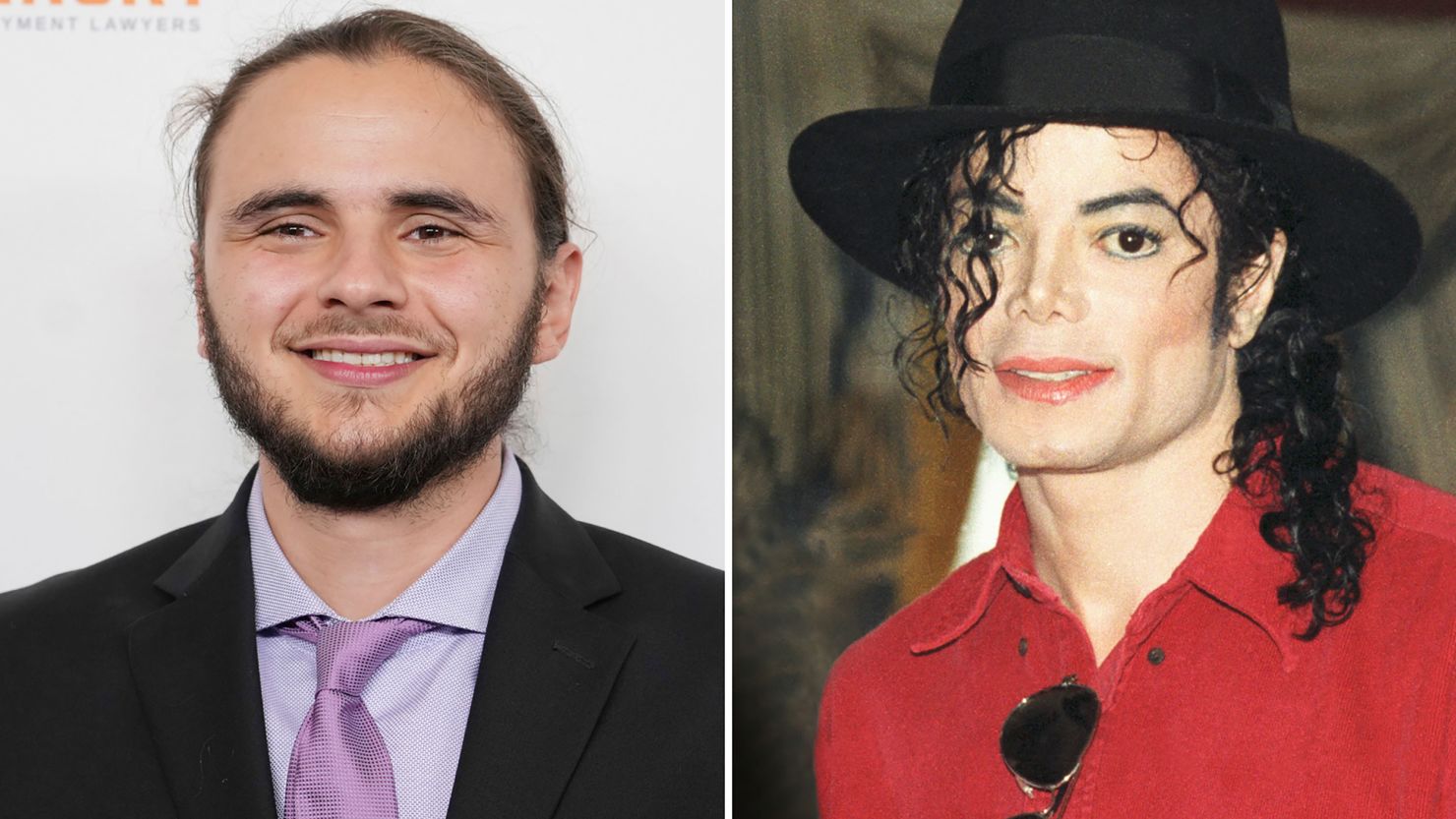
The name Michael Jackson evokes a kaleidoscope of images: the moonwalk, the dazzling costumes, the unparalleled musical genius that redefined pop culture. Yet, beneath the glittering spectacle of the King of Pop’s reign lay a life of intense scrutiny and, for his children, a legacy intertwined with profound sorrow and challenge. Among them, his eldest son, Prince Michael Jackson Jr., has navigated a path uniquely marked by the extraordinary circumstances of his birthright and the relentless glare of the public eye.
From the very beginning, Prince’s life was anything but ordinary. He was born into a world of unparalleled fame, shielded yet simultaneously exposed to the complexities of his father’s controversial existence. Following Michael Jackson’s unexpected death in 2009, when Prince was merely 12 years old, the protective bubble shattered, forcing him to confront a myriad of personal and public adversities that few young individuals could ever fathom. His story is a poignant testament to resilience amidst perpetual tragedy, a journey of grappling with a colossal legacy while forging his own identity.
This in-depth exploration delves into the deeply affecting chapters of Prince Jackson’s life, tracing the indelible marks left by his turbulent childhood and the ongoing struggles he has faced. From the bizarre masks of infancy to the heart-wrenching court testimonies, the constant questioning of his lineage, and the very real personal losses, Prince’s narrative unfolds as a complex tapestry of grief, loyalty, and an unwavering commitment to understanding the man he simply knew as “Dad.” We uncover the tragic, true story of a young man burdened by an iconic name, yet determined to live with grace and purpose, bearing witness to a life lived under an almost unimaginable spotlight.

1. **The Imposed Seclusion of Childhood**: From his earliest days, Prince Jackson’s existence was defined by an almost surreal paradox: born into the blinding spotlight of global superstardom, yet cloaked in a deliberate, enigmatic anonymity. Michael Jackson, acutely aware of the invasive nature of his own fame, took extreme measures to shield his children, Prince, Paris, and Bigi, from the relentless gaze of photographers. This protective instinct manifested most famously in the masks and face coverings they were consistently made to wear whenever they ventured out in public, transforming them into recognizable yet faceless figures in the media landscape.
This unusual upbringing, while seemingly extreme to outsiders, was rooted in a father’s desire to grant his children a semblance of normalcy. Prince himself later elucidated this profound intention during his testimony in his father’s wrongful death suit in 2013, as reported by the Los Angeles Times. He revealed that the purpose was “so no one would know what we looked like so if we went out without him we could have a normal childhood.” Prince further elaborated in a 2016 interview, stating, “My dad spoke to me like an adult. He told us the reason for the masks was he wanted us to have our own life without him.”
However, even Michael Jackson’s attempts at shielding his children were not without their own complications. While the masks served their intended purpose of obscuring faces, the very act of wearing such unusual coverings inevitably became another point of fascination and, for some, criticism directed at the eccentric star. This early imposition of secrecy and the subsequent public discussion surrounding it foreshadowed the intricate balance of fame and privacy that Prince would forever navigate, creating a unique foundation for his personal development.
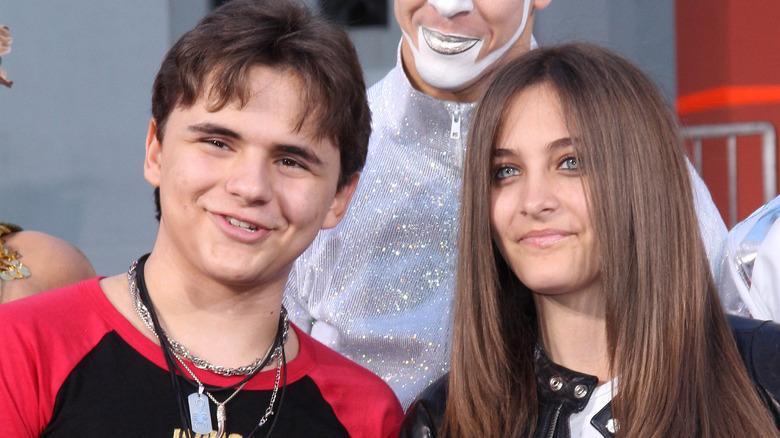
2. **The Shadow of Paternity Doubts**: Few aspects of Prince Jackson’s early life have been subjected to as much invasive speculation and public debate as the question of his paternity. From the moment of his birth, whispers and outright claims about Michael Jackson not being the biological father have persistently shadowed Prince and his siblings, Paris and Bigi. This highly sensitive issue became a recurrent theme in media narratives surrounding the Jackson family, creating an additional layer of emotional complexity for the children as they grew up in the harsh glare of celebrity.
The primary source of these persistent doubts originated, controversially, from his mother, Debbie Rowe. In a 2011 interview, two years after Michael’s death, Rowe made a series of scathing remarks that seemed to dismiss her biological connection to Prince and Paris. “I was just the vessel. It wasn’t Michael’s sperm,” Rowe stated unequivocally, as reported by HuffPost. She added, “Just like I stick the sperm up my horse, this is what they did to me. I was his thoroughbred.” These words, delivered with apparent disregard, fueled a public frenzy of speculation and undoubtedly inflicted a profound emotional toll on her children.
Beyond Rowe’s astonishing claims, other individuals close to Michael Jackson also contributed to the ongoing speculation. Mark Lester, a long-time friend of the singer, publicly asserted in 2017 that he believed he could be the biological father. Lester recalled to the Daily Mail that Michael had allegedly approached him in the ’90s to donate sperm. Even Michael’s former doctor, Arnold Klein, posthumously fanned the flames by posting a suggestive comparison photo on social media.
Despite this barrage of doubt and external narratives, Prince Jackson has consistently and firmly maintained his unwavering belief in Michael Jackson as his true father. In a powerful social media response in 2015 to a user promoting the Klein theory, Prince declared, “The blood of the covenant is thicker than the water of the womb. I was raised by my dad with my brother and sister.” This resolute statement underscores his loyalty and the profound bond he shared with the man who raised him, regardless of biological ties, a testament to the emotional fortitude required to withstand such relentless public questioning.

3. **A Mother’s Stark Rejection**: One of the most heartbreaking facets of Prince Jackson’s early life, compounding the complexities of his paternity, was the deeply strained and, at times, openly dismissive relationship with his biological mother, Debbie Rowe. Their connection, fragile from the outset, was never built on conventional familial foundations. Rowe and Michael Jackson initially met under unusual circumstances in 1983, when she was a nurse treating him for vitiligo. Their marriage in 1996 reportedly stemmed from Rowe’s offer to be the mother of his children, rather than a traditional romantic bond.
The transactional nature of their union became brutally clear when they divorced in 2000, just four years after marrying. In a move highly unconventional for a mother, Rowe granted Michael full custody of both Prince and Paris. This decision, which effectively removed her from their daily lives, was later reinforced by her own public statements. In a 2011 interview, Rowe shockingly doubled down on her decision, declaring not only that the children were not Michael’s biological offspring but also stating, “I know I will never see them again. I was never cut out to be a mother — I was no good. I don’t want these children in my life. My children are my animals now.”
These incredibly harsh and public pronouncements from his biological mother undoubtedly left an indelible scar on Prince. To be so openly disavowed by a parent, especially one who chose to step away, must have been an immensely painful experience for a child. This rejection forced Prince to seek maternal figures elsewhere, finding comfort and guidance within his extended family. In a candid 2016 interview with the Los Angeles Times, Prince acknowledged the void, revealing that he considered his grandmother, Katherine Jackson, and his cousin, TJ Jackson’s wife, Frances, as mother figures in his life. He forthrightly stated that he does not have a relationship with Debbie Rowe, a painful admission that speaks volumes about the lasting impact of her choices.

4. **Navigating His Father’s Scandals**: Michael Jackson’s unparalleled artistry was always accompanied by an undeniable aura of controversy, and for Prince, this meant growing up under the immense shadow of persistent and deeply disturbing allegations against his father. While Michael was a beloved entertainer in his younger years, the landscape dramatically shifted in 1993 when the LAPD launched an investigation into accusations of child molestation. This initial probe, and later claims that surfaced, cast a long and dark pall over Michael’s public image and personal life, a burden that Prince would inherit and be forced to confront.
The accusations escalated further, culminating in Michael’s arrest in 2003 and a subsequent high-profile trial in 2005, where he was eventually acquitted. Despite the acquittal, the saga left an indelible mark on Michael Jackson’s legacy, sowing seeds of doubt and fueling relentless media scrutiny. For his children, these allegations were not abstract public debates but deeply personal attacks on the man they loved and knew as “Dad.” They were forced to reconcile the global icon with the figure embroiled in such serious controversies, a task that would challenge their understanding of their family and the world around them.
The full weight of these allegations reportedly “bombarded” Prince and his siblings after their father’s death. In a 2016 interview with the Los Angeles Times, Prince recounted the shock: “After he died, we got bombarded with [everything].” He described it as an overwhelming experience, stating, “It was a shock, It all came at once.” Yet, in the face of this onslaught, Prince demonstrated a remarkable coping mechanism, explaining, “But [we] learned how to deal with it by just kind of ignoring it.” Prince has consistently maintained his father’s innocence, aligning with his sister Paris, who vehemently defended their father against such accusations, attributing them to jealousy of his success. Carrying this burden, defending his father’s memory, and navigating a world that sought to define Michael by his controversies, has been a profound and tragic element of Prince Jackson’s life.

5. **The Abrupt Loss of His Father at 12**: The year 2009 marked the single most shattering tragedy in Prince Jackson’s young life: the sudden and untimely death of his father, Michael Jackson. At just 12 years old, Prince, along with his sister Paris (11) and brother Bigi (7), were plunged into an unimaginable vortex of grief, amplified exponentially by the global magnitude of their father’s fame. The world mourned the loss of a pop icon, but for Prince, it was the intensely personal devastation of losing “Dad,” a void that no amount of public sympathy could ever fill.
The immediate aftermath was chaotic and intensely public. While grieving, Prince had to contend with the relentless media storm that erupted around the death of such a monumental figure. The children were swiftly moved to the family’s Hayvenhurst estate in Encino, California, where they lived with a multitude of relatives. This communal living environment, while initially overwhelming, paradoxically offered a form of solace and distraction. “It was beneficial. There were 16 people here,” Prince reflected in a 2016 interview. “It took you away from the grief. We’d wake up in the middle of the night, make quesadillas, and talk.”
Despite their tender ages, Prince and his siblings were compelled to make a public appearance at Michael’s star-studded memorial service. It was a moment etched into collective memory, as a visibly distraught Paris bravely addressed the massive crowd, speaking of her love for her father before breaking down in tears. Prince, along with the family, enveloped Paris in a tight hug, a public display of private agony. Michael Jackson’s death was later ruled a homicide, with Dr. Conrad Murray convicted of involuntary manslaughter, adding a layer of tragic injustice that would define Prince’s young adulthood.
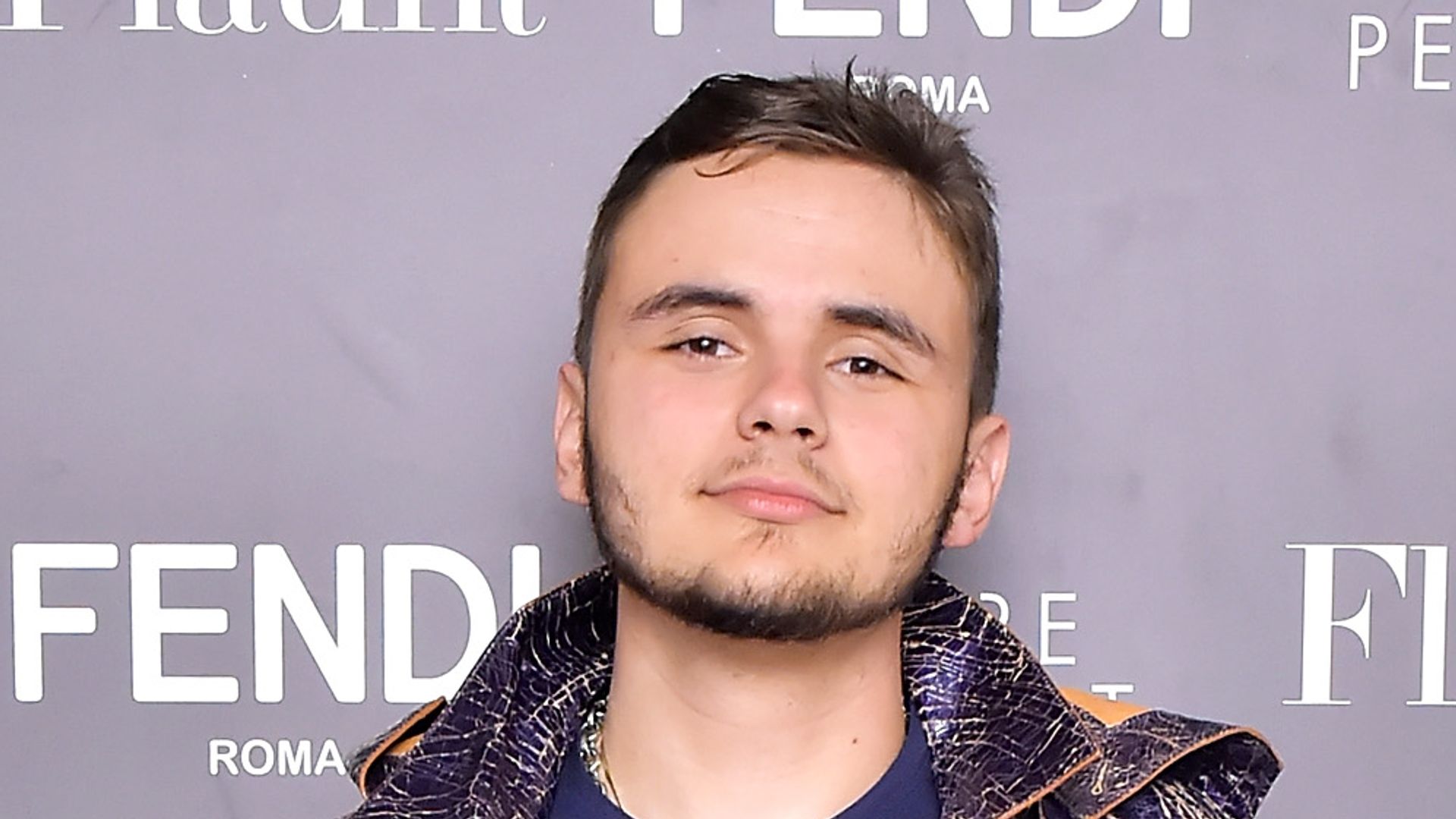
6. **The Turmoil of Family Disagreements**: Following the death of Michael Jackson, the protective structure around Prince and his siblings shifted, placing them in the custody of their formidable grandmother, Katherine Jackson. While this offered a sense of continuity, it also exposed Prince to the internal complexities and occasional turbulence of the expansive and famously close-knit Jackson family. Prince, still reeling from his father’s death, found himself caught in the crosscurrents of a significant family squabble.
A particularly distressing incident unfolded in 2012 when Katherine Jackson reportedly disappeared for 10 days, sparking widespread concern and a temporary revocation of her guardianship. During her absence, Michael’s nephew, TJ Jackson, was named as the children’s guardian. When Katherine resurfaced, it became apparent that she had been taken to an Arizona spa on doctor’s orders by some of Michael’s siblings — namely Janet, Jermaine, Randy, and Rebbie — without the children’s knowledge or consent. This calculated move ignited a public furor and deeply upset Prince, who felt his grandmother had been misled and isolated.
Prince, then a teenager, bravely took to Twitter to voice his frustration and concern, directly taking aim at his uncles. “Although I am happy my grandma was returned, after speaking with her I realized how misguided and how badly she was lied to,” he posted, via CNN. He even shared screenshots of a text conversation where family members seemingly prevented the children from contacting Katherine. In a poignant conclusion, Prince revealed that his father had warned him to be wary of “certain people and their ways,” a chilling echo that suggested these family tensions were not entirely new. This public display of family strife was a deeply unsettling experience for Prince, forcing him to navigate loyalty, distrust, and the inherent difficulties of an enormous, famous family.

